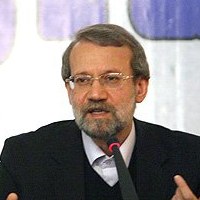![]()
Wed, Oct 12, 2011 | Rubin Reports | By Barry Rubin

Gilad Shalit supporers marching toward the Jerusalem residence of Prime Minister Benjamin Netanyahu this summer. (Uriel Sinai/Getty Images)
Strategic Notes on the Gilad Shalit Prisoner Exchange
There are some substantial misunderstandings on the nature of the Gilad Shalit exchange deal. I should stress that the list of those Palestinian prisoners being given in exchange for him has not yet been released. But note the following:
— The number 1000 is impressive but most will be chosen by Israel, meaning they will be prisoners with the lightest sentences and crimes — in other words, people who would have been released anyway during the next year or two.
— Israel rejected Hamas’s demand to release those being called “arch-terrorists” who were major organizers of attacks or responsible for a larger loss of life.
— Of the most serious terrorist prisoners, only a bit over 96 will be released into the West Bank and 14 to east Jerusalem where they could cause direct trouble for Israel. The rest will be sent to the Gaza Strip or deported altogether. Those with lighter sentences who live in the West Bank would have been sent there anyway when their sentences were finished.
— Hamas did a politically clever thing by demanding that half of the named prisoners be non-Hamas people. The goal is to make Hamas more popular among Fatah supporters and on the West Bank.
The plan is as follows:
After a 72-hour wait following the issuing of a list of those to be released — to let families of victims file petitions against it — the minister of justice will signal readiness to carry out the deal. Gilad Shalit will arrive in Cairo. At that point, Israel will release about 450 terrorists under heavy sentence.
Of these 450 prisoners:
— 131 Gaza Strip residents will go there.
— 163 West Bank residents will be expelled from the West Bank to the Gaza Strip.
— 40 will be expelled overseas.
— 96 will return to their homes in the West Bank.
— 14 will return to their homes in east Jerusalem.
— 6 Israeli Arabs will be released to their homes.
At this point, Shalit will return to Israel.
Then Israel will release 550 prisoners of its choice.
To summarize: Shalit will be released in Cairo and then he can come to Israel. After Shalit arrives, 550 prisoners with lighter sentences, chosen by Israel, will be released.
As I noted earlier, this is a high price — though lower than many think — but the step is seen by most Israelis as a moral imperative even though it certainly can be seen as posing some future danger and rewarding terrorism.
Regarding the argument that this will encourage terrorism or kidnapping, however, it should be understood that terrorist groups always conduct the highest possible number of attacks and kidnapping attempts that they can try. The deal will not really have any effect on that, though of course individual terrorists released — especially those going to the West Bank — will pose an additional threat. They will be closely watched and some of them have no doubt been turned into sources of intelligence for Israel. Still, we know specific cases in the past in which freed prisoners have gone on to kill Israelis.
Here’s the brilliant Yossi Klein Halevi thinking out loud about the Israeli psychology and issues involved in this deal.
Also read: “Gilad Shalit and ‘The Cruel Calculus of Death’”.



 RSS
RSS










Strategic Notes on the Gilad Shalit Prisoner Exchange | Middle East, Israel, Arab World, Southwest A http://t.co/CZ9vDj6d
Strategic Notes on the Gilad Shalit Prisoner Exchange | Middle East, Israel, Arab World, Southwest A http://t.co/CZ9vDj6d